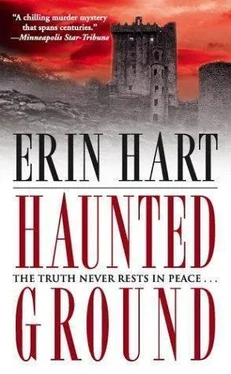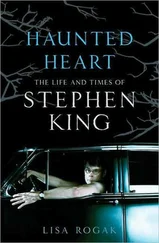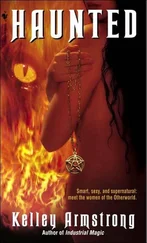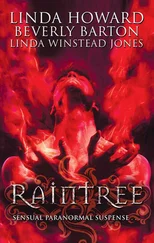The room was dark, but she could see from the moonlight streaming in from the windows that the plastered walls were painted a deep shade of scarlet, and that its woodwork, including tall shutters on the windows, had been painted many times over in a glossy white. As in the library, the ceiling was elegantly coved plasterwork, but in this room curls of peeling white paint clung precariously to its surface. The floor was made from broad planks of oak, and the huge Persian carpet that very nearly covered it was threadbare. The room was decorated in a jumble of periods and styles. There were two settees, with slender carved legs, upholstered in gold damask, facing one another in front of a huge stone fireplace. Above the mantel hung a portrait of an aristocratic-looking woman in full riding habit but sans horse. An elaborately carved wooden screen and a large hookah hinted at some family member’s military service in India. Along with spoils of empire, this room also held the requisite hunting trophies from a country estate: stuffed pheasants and foxes, even the huge mounted antlers of an ancient Irish elk. Though the estate must undoubtedly be worth some serious money, this room and everything in it spoke of declining fortunes at Bracklyn House.
Nora pushed open one set of heavy double doors at the far side of the sitting room. The stairs had to be close by now; she felt as though she’d been going around in circles. The next shadowy chamber was some kind of office, but much of it was draped in dustcovers. She’d gone several paces into the room when she turned and saw in the darkness before her a pair of large yellow eyes. An involuntary cry escaped her lips. To her left, a door hidden in the paneling opened suddenly, and through it came Hugh Osborne, who quickly crossed to switch on the light. Cormac followed close on his heels.
“Nora, what is it? Is everything all right?”
“I’m fine. I just got lost,” she said, peering at the thing that had startled her: in the light it was nothing but a large brown and yellow butterfly in a bell jar. Nora’s eyes traveled upward and around the room. Butterflies—hundreds of them, some as tiny as bees, others with wingspans of nearly ten inches—filled nearly every inch of wall space. They were iridescent blue, and yellow, and brilliant orange, with eye spots and swallowtails, each one pierced through with a pin, neatly labeled and displayed under glass. Such beauty, but the vibrant colors and lifelike poses somehow did not make up for the fact that these lovely insects were all dead.
Hugh Osborne finally said, “I’d quite forgotten the impression this room can make. My grandfather had rather an avid interest, for an amateur collector. I remember him drilling me on all the scientific names.”
“I’ve never seen so many,” Cormac said. “Barring a museum.”
“I’m sure he intended them to end up in some museum, but in later years he lost interest in collecting.”
“What could make him give it up—apart from already having one of everything?” Cormac asked. Osborne hesitated, and Nora watched him study Cormac for a moment, apparently deciding how to answer.
“He’d been away on an expedition, and my parents were on their way to meet him off the boat in Rosslare when their car went off the road. They were both killed. My grandfather hadn’t much appetite for anything after that.”
“It’s got to stop, Lucy, before he gets hurt, or—God help us—before he does injury to someone else.” Hugh Osborne’s voice was agitated, and Cormac guessed that he was talking about Jeremy. He’d just come from taking another look at the priory plans in the library, and was returning to his room to collect the last of the gear for the morning’s dig. He’d reached the landing when he heard voices coming from behind a half-open door at the top. He knew he ought not to be listening in on a private conversation, and yet he felt caught, not knowing whether to retreat or advance.
“I’m very grateful for your concern.” It was Lucy’s voice. “Heaven knows you’ve tried to be like a father. But most boys Jeremy’s age go through a period of rebellion. Your worry is quite out of proportion.”
“He came into the house last night so drunk he could barely stand. Please, Lucy, we have to do something.”
“What can we do? He’s not a child anymore. I’ve already spoken to him on this subject more than once.” There was a pause.
“There are very good treatment programs—”
“I won’t have him taken away and locked up. I couldn’t bear that, Hugh, I truly couldn’t.” Their voices receded suddenly, as if they’d become aware of how loudly they’d been speaking.
Cormac began to climb the stairs once more. His eye caught a movement in a large mirror just beside the open door, and he could see Jeremy Osborne’s dark features reflected in its surface. The boy was standing in a doorway opposite the mirror; he appeared to have been listening as well. His face was deathly pale, and Cormac could see dark circles almost like bruises under his eyes. When Jeremy saw that he’d been observed, he pulled the door shut.
God, the drink was a bastard. What age could that boy have been when he found his father dead? He couldn’t be more than seventeen or eighteen now, if that. Cormac remembered his own complex feelings when he was ten, and his almost complete inability to express them. He remembered his hurt and anger when his father had left them, the dreadful helplessness he felt when he looked at his mother’s face.
He was sitting on the steps of his gran’s house, listening to his mother and grandmother argue below in the kitchen. They didn’t know he was there. He’d gone upstairs to get his hurling ball, and couldn’t slip out without being seen, so he decided to wait and listen. He pulled out his pocketknife to see if he could pry up a corner of the leather on the ball to find out what was inside.
“And he told you all this in a letter?” He could hear the indignation in his grandmother’s voice, her anger boiling over as she stirred the sugar into her tea with a force that threatened to shatter the cup. “Didn’t even have the courage to tell you to your face. And what about Cormac? What about looking after his own son?”
“I’ve told you all I know, Mam,” his mother said, sounding completely exhausted. “Must we go over it all again?”
“What business is it of his what they do off in Bolivia—”
“It’s Chile, Mammy. People are disappearing.”
“I don’t care how much they need him in any godforsaken country on earth, he belongs here with his family. He’d no business getting mixed up in all that in the first place.” They went on talking, but Cormac listened more to the sound of their voices than the actual words.
They’d received his father’s letter a few days before, and he had watched first his mother’s anticipation, then her anguish, which she’d tried to keep hidden but couldn’t. After about an hour, she’d asked him to sit with her on the sofa. It was very important work that his daddy was doing, she’d said; he was trying to help a lot of people who were in desperate trouble, and he had to stay for another while, he didn’t know how long. Daddy had written that he loved them both, but it was far too dangerous for them to be with him, and that at least for now, he had to remain where he was needed. Cormac knew there was more she wasn’t telling.
The women’s voices floated up to him as he sat on the steps, and he began to realize that his father would never be coming home. He looked down at what had been a perfectly good hurling ball, now a loose flap of leather and a sphere of cork, pitted and gouged from all the places he’d stuck his penknife in it.
The memory unsettled him. He remembered how often as a boy he’d wished his father ill, but it was the kind of misfortune that a ten-year-old child could imagine: that he might trip and fall, or suffer some other small humiliation. He had never actually wished his father dead. But suppose he had? And suppose his father had then died? A suicide must be even worse, he thought, remembering the hours he’d spent trying to divine if there was something he might have said or done that could have driven his father away. No wonder Jeremy Osborne was a mess.
Читать дальше











